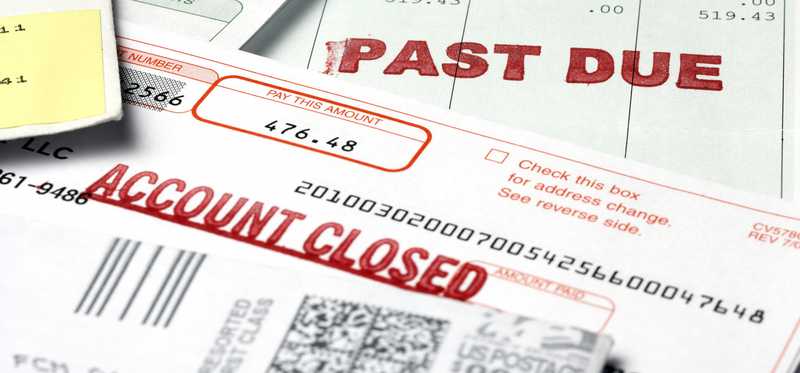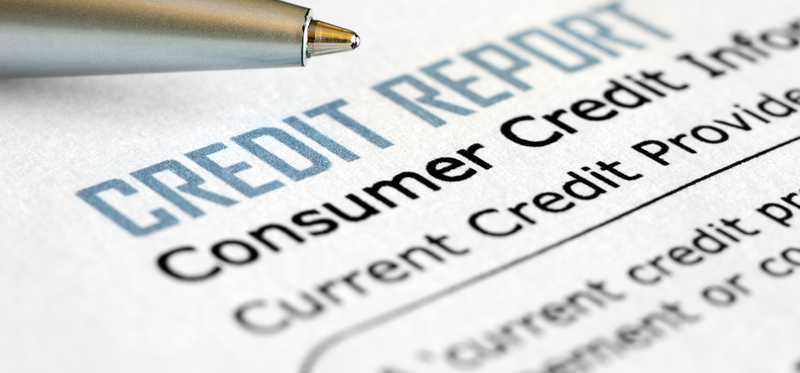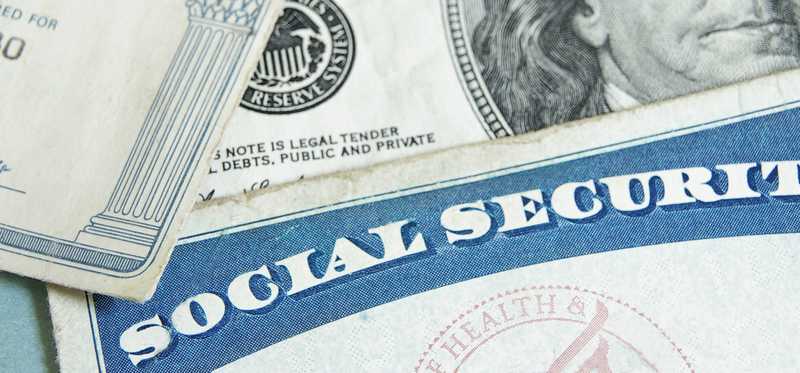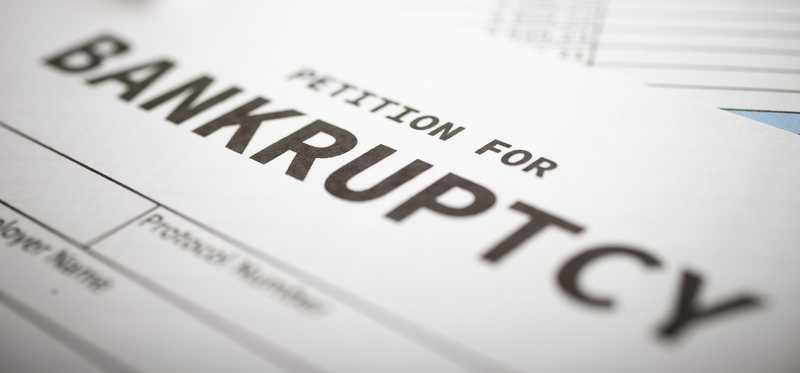15 Mistakes That May Be Hurting Your Credit Score

15 Mistakes That May Be Hurting Your Credit Score
Caution: Troubles ahead
Your credit score affects so much of your life. It determines what kind of credit cards you can get, how much you can borrow from banks, and even whether you can get a certain job or rent a certain apartment. So keeping it high is key if you want to keep your costs as low as possible.
The trick to doing this is to avoid the things that can tank your score in the first place. Let's look at 15 of them.
5 Winning Stocks Under $49
We hear it over and over from investors, “I wish I had bought Amazon or Netflix when they were first recommended by the Motley Fool. I’d be sitting on a gold mine!” And it’s true. And while Amazon and Netflix have had a good run, we think these 5 other stocks are screaming buys. And you can buy them now for less than $49 a share! Simply click here to learn how to get your copy of “5 Growth Stocks Under $49” for FREE for a limited time only.
Previous
Next

1. Paying your bills late
Payment history is the single biggest factor affecting your credit score, accounting for 35% of your FICO score, the most popular credit scoring model used by lenders. Even a single late payment can drop an excellent credit score significantly. Paying a day late may not be the end of the world. But if you are 30 or more days late, you can expect your creditor to report you to the credit bureaus and your score will take a huge hit.
If you struggle to remember to pay your bills on time, set reminders for yourself or see if you can set up automatic payments to avoid potential problems in the future.
ALSO READ: Should You Apply for a New Credit Card or Improve Your Credit Score First?
Previous
Next

2. Missing bill payments completely
Failing to pay your credit card issuer, your utility provider, or even your local library if you owe late fees can result in your account being sent to collections. This information also shows up on your credit report, and it can hurt your score even worse than a late payment.
If you have outstanding debts, contact your creditor to explain the situation and see if you can set up some type of payment plan, rather than just avoiding the debt entirely. This will keep the creditor happy, and it won't hurt your credit score quite as much.
Previous
Next

3. Maxing out credit cards
The second-biggest factor in your credit score calculation is your credit utilization ratio. This looks at how much of your available credit you use every month. Ideally, you don't want to exceed 30% of your available credit in a month because this suggests that you're spending beyond your means and are heavily dependent on credit. That's a red flag to lenders.
If you're not able to limit your spending to 30% or less, you can try applying for a credit limit increase or you could pay your bill twice per month. The credit bureaus only see your balance at the end of the month, so if you pay your bill halfway through and at the end, it will be as though you spent less than you actually did.
Previous
Next

4. Only paying the minimum balance
Paying the minimum balance on your credit cards will help you avoid a late payment, but if you carry a balance, you're starting the next month with less available credit. If you charge more to your card, your credit utilization ratio will rise even higher. Paying off credit card debt isn't easy because of the high interest rates, so many people end up with higher balances over time -- and thus, higher credit utilization ratios than they expected.
Work on paying off your credit card debt if you aren't already. Consider using a balance transfer card. This will temporarily halt the growth of your balance, making it easier for you to pay down. Once you're debt-free, always pay your balance in full every month to avoid new interest charges.
Previous
Next

5. Avoiding credit entirely
Some people think that by avoiding using credit, they won't fall into the trap of spending more than they have. But avoiding credit is also a risk in itself because then lenders don't have any idea how you'll handle borrowed money when you need it to make a large purchase, like a house.
Consider opening at least one credit card. You don't have to charge a lot to it. Just make one or two small purchases every month and pay the balance off in full. This will show lenders that you're responsible and will help you boost your credit score over time.
5 Winning Stocks Under $49
We hear it over and over from investors, “I wish I had bought Amazon or Netflix when they were first recommended by the Motley Fool. I’d be sitting on a gold mine!” And it’s true. And while Amazon and Netflix have had a good run, we think these 5 other stocks are screaming buys. And you can buy them now for less than $49 a share! Simply click here to learn how to get your copy of “5 Growth Stocks Under $49” for FREE for a limited time only.
Previous
Next

6. Avoiding credit cards
If you have a loan or two under your belt, you may think you don't need credit cards. But skipping them could hurt your credit score. That's because a portion of your score is based on your credit mix. There are two main types of debt -- revolving and installment debt. Revolving debt doesn't have a regular monthly payment, while installment debt does.
The credit bureaus give higher scores to people who prove that they can handle both types of debt responsibly. That's not a good enough reason to run out and get a loan you don't need, but if you don't have any credit cards yet, that's a good excuse to open one.
Previous
Next

7. Applying for new credit cards too often
Every time you apply for a new credit card, the card issuer does a hard inquiry on your credit report. This drops your score by a couple of points, which isn't that big of a deal, especially if you're approved for the card. But if you apply for new cards all the time, it can be a red flag to lenders that you need a lot of credit to sustain your lifestyle.
When seeking out a new loan or credit card, try to get all your applications in within 30 days of each other. The credit bureaus count these as a single inquiry because they understand that shopping around is a normal part of the credit-seeking experience. Once you've got your new loan or card, avoid applying for more credit for at least six months if you can help it to avoid racking up too many hard inquiries on your report.
ALSO READ: How Does Your Credit Score Affect Your Mortgage Rates?
Previous
Next

8. Frequently requesting credit limit increases
Requesting a credit limit increase also triggers a hard inquiry on your credit report, and as we just discussed, that can hurt your credit score. That doesn't mean you can never request one. If you're approved, that will drop your credit utilization ratio, offsetting the small drop from the hard inquiry on your credit report.
Only apply for a credit limit increase if you feel confident you'll be approved. Otherwise, you will just lower your credit score unnecessarily. Whether your request is approved or denied, try to wait at least six months before requesting another increase.
Previous
Next

9. Closing credit cards
Closing credit cards is problematic because it reduces the amount of credit you have access to and therefore, raises your credit utilization ratio. If the card in question doesn't have an annual fee, you may as well hold onto it even if you don't use it, to keep your credit utilization ratio low.
If you have a card with an annual fee that you would like to close, brace yourself for a credit score hit and try to keep your spending on your remaining cards low. Try not to close more than one card every six months to minimize the effect of these closures on your credit score.
Previous
Next

10. Cosigning a loan
When you cosign a loan, you're agreeing to take responsibility for that loan if the primary borrower is unable to do so. Hopefully, you won't run into this issue, but if the borrower fails to make payments and doesn't tell you, that will hurt your credit score also.
Avoid cosigning loans whenever possible, and if you do, make sure you feel confident that the borrower can keep up with the payments. Stay in touch with them to make sure the loan is still in good standing and discuss what you will do if the borrower cannot make a payment.
5 Winning Stocks Under $49
We hear it over and over from investors, “I wish I had bought Amazon or Netflix when they were first recommended by the Motley Fool. I’d be sitting on a gold mine!” And it’s true. And while Amazon and Netflix have had a good run, we think these 5 other stocks are screaming buys. And you can buy them now for less than $49 a share! Simply click here to learn how to get your copy of “5 Growth Stocks Under $49” for FREE for a limited time only.
Previous
Next

11. Ignoring your credit report
Your credit report is a record of how you've managed credit in the past, and it's the basis for your credit score. The information in the reports comes directly from the financial institutions you borrow from, so it's usually accurate, but sometimes things go wrong. Information isn't always reported correctly and sometimes thieves steal hardworking people's identities.
You can avoid these issues tanking your credit score by checking your report for errors once a year. Access yours for free through AnnualCreditReport.com. You'll need to verify your identity first, but then you can see your full reports. If you notice anything amiss, contact the credit bureau and the financial institution associated with the wrong information.
ALSO READ: Nearly Half of Robinhood Users Have Low FICO Scores. Should They Be Investing?
Previous
Next

12. Being careless with your personal information
Leaving private information like your Social Security Number or your credit card numbers out where other people can find it is dangerous because a thief could get hold of it and use it to steal your identity.
Don't carry your Social Security Number around with you, and make sure you don't leave any financial information or the passwords to any of your financial accounts out where others can find it. If you lose track of a card or you think someone may have hacked your account, notify the financial institution immediately.
Previous
Next

13. Filing for bankruptcy
Filing for bankruptcy is the worst mistake you can have on your credit report. Unlike most negative marks, which only stay on your report for seven years, bankruptcy sticks around for 10 years.
If you're struggling to keep up with your debts, reach out to your lenders or a credit counselor to see what solutions you can come up with. Bankruptcy will make it difficult for you to secure any credit for a long time to come, so it should be a last resort.
Previous
Next

14. Debt settlement
Settling a debt means reaching an agreement with your creditor in which you will pay a certain amount that's less than what you owe and your creditor will absolve you of responsibility for the rest of the unpaid amount. This won't hurt your score as bad as ignoring debt payments outright, but your credit will still take a hit.
Ideally, you can come up with a payment plan or another solution that doesn't require debt settlement. But if that's not possible, make sure you understand how a debt settlement will negatively affect your score.
ALSO READ: Here's What Happened to My Credit Score When I Refinanced My Mortgage
Previous
Next

15. Being an authorized user on someone's credit card
An authorized user is someone that a credit card owner permits to use their card. It could be a spouse, a child, or a friend. Once you're an authorized user, this card shows up on your credit report too, so if the account owner isn't responsible with their money, it could come back to bite you later.
If you can get a card in your own right, you can avoid worrying about other people's financial activity. Consider a secured credit card or a student credit card if you're in college. Both of these options are designed to help people build credit even if they don't have any credit history to start.
5 Winning Stocks Under $49
We hear it over and over from investors, “I wish I had bought Amazon or Netflix when they were first recommended by the Motley Fool. I’d be sitting on a gold mine!” And it’s true. And while Amazon and Netflix have had a good run, we think these 5 other stocks are screaming buys. And you can buy them now for less than $49 a share! Simply click here to learn how to get your copy of “5 Growth Stocks Under $49” for FREE for a limited time only.
Previous
Next

It's all about consistency
Avoiding these 15 mistakes will help you keep your credit score high, but if you've already made some of them, it will take a while for your credit score to start climbing again. Your past mistakes will continue to show up on your credit report and affect your score for seven years, though their effect becomes less with time.
In order to raise your score, you have to consistently demonstrate good financial habits and be patient. You will get there, and once you do, you'll be able to reap the benefits of better credit cards and more affordable loans, so it's worth the effort.
The Motley Fool has a disclosure policy.
Previous
Next
Invest Smarter with The Motley Fool
Join Over Half a Million Premium Members Receiving…
- New Stock Picks Each Month
- Detailed Analysis of Companies
- Model Portfolios
- Live Streaming During Market Hours
- And Much More
READ MORE
HOW THE MOTLEY FOOL CAN HELP YOU
-
Premium Investing Guidance
Market beating stocks from our award-winning service
-
The Daily Upside Newsletter
Investment news and high-quality insights delivered straight to your inbox
-
Get Started Investing
You can do it. Successful investing in just a few steps
-
Win at Retirement
Secrets and strategies for the post-work life you want.
-
Find a Broker
Find the right brokerage account for you.
-
Listen to our Podcasts
Hear our experts take on stocks, the market, and how to invest.
Premium Investing Services
Invest better with The Motley Fool. Get stock recommendations, portfolio guidance, and more from The Motley Fool's premium services.